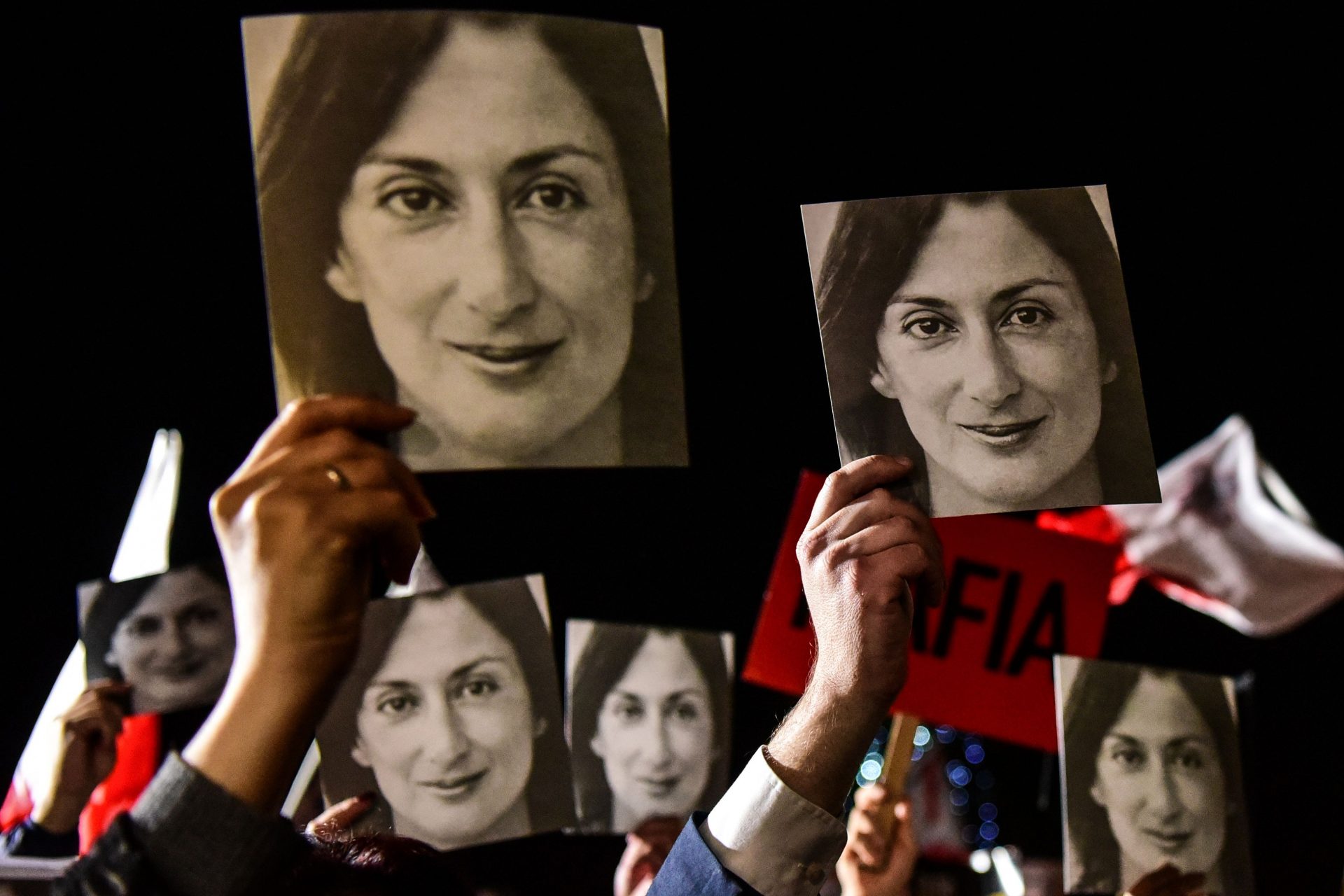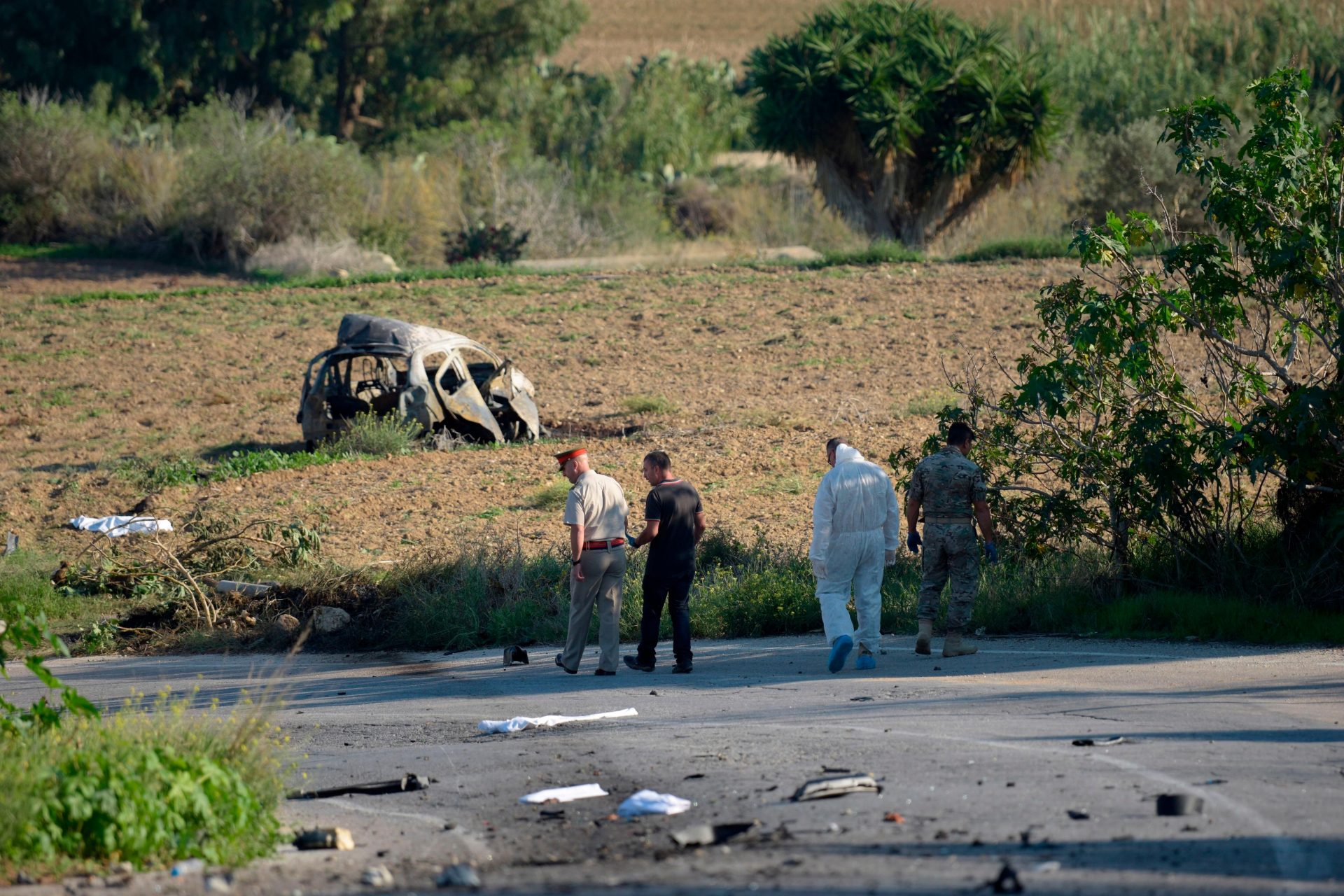When news of the car bomb assassination of Maltese investigative journalist Daphne Caruana Galizia broke nearly four years ago, the murder provoked widespread outrage and was condemned as a direct assault, at the heart of Europe, on the EU’s founding values.
Now, as Maltese business tycoon Yorgen Fenech faces trial for allegedly masterminding the hit, the shock is turning to widespread horror that similar killings seem to be happening again and again. When, in July, Dutch crime reporter Peter de Vries was shot dead in a mafia-style hit in Amsterdam, he wasn’t even the first such journalist to die in that way in Europe this year. The veteran Greek journalist Giorgos Karaivaz, who specialised in covering organised crime, was murdered near his home in April by two motorcycle gunmen in what Greek authorities described as a professional hit.
Following the similar mobster execution of Slovak investigative journalist Jan Kuciak just months after Caruana Galizia was blown up, Reporters Without Borders (RSF) released a report highlighting the dangers faced by journalists who dare to stir up the cesspit of organised crime and its political backers.
At the time of that report, in 2018, around 30 journalists were known to have been killed by criminal organisations in two years. Although these figures included Caruana Galizia and Kuciak, most were in Latin America, many at the hands of Mexico’s ruthless drug cartels.
Such killings are not new, even in Europe. It has been a quarter of a century since the Irish journalist Veronica Guerin was shot and killed at point-blank range in 1996 by a drug gang. High-profile investigative journalists were killed in eastern Europe and the Balkans at the turn of the century.
But the recent, worrying, spread of executions further into Europe calls into question the ability or willingness of some states to safeguard the freedom of journalists to follow where the trail of corruption leads. Recent murders have occurred in countries that are higher up the world press freedom rankings. While Malta languishes around 81st on the latest list, Slovakia is 35th, just one place behind France and two places behind the UK. The Netherlands is sixth.
“Organised crime is a major threat to press freedom. In recent times we have hardly had a year without the killing of a journalist in Europe, which is – and this is striking – the safest continent for journalists in the world,” Pavel Szalai, RSF’s head of the EU and Balkans desk, told The New European.
While the Netherlands acted fast, with two arrests on the day de Vries died, Szalai said the absence of progress in Greece after five months was “concerning”. The pace of many prosecutions has been languid. Only one hitman has so far been convicted for Caruana Galizia’s death, and no political masters. Slovakia has now ordered the retrial of a prominent businessman for masterminding Kuciak’s murder, claiming the original court that acquitted him had not considered all the evidence.
Increasingly, investigative journalists are being given security protection, which in itself can limit their freedom to work. In Italy, where the mafia is an ever-present threat to reporters trying to sniff out their crimes, around 20 are living under permanent protection.
Among those currently under police protection is Greek publisher and journalist Kostas Vaxevanis, who after Karaivaz’s death furnished an eloquent comment on the political context for these murders: “When journalists are killed and the killer is not a madman, it means that democracy is rotten and the people must live with the stench.”



